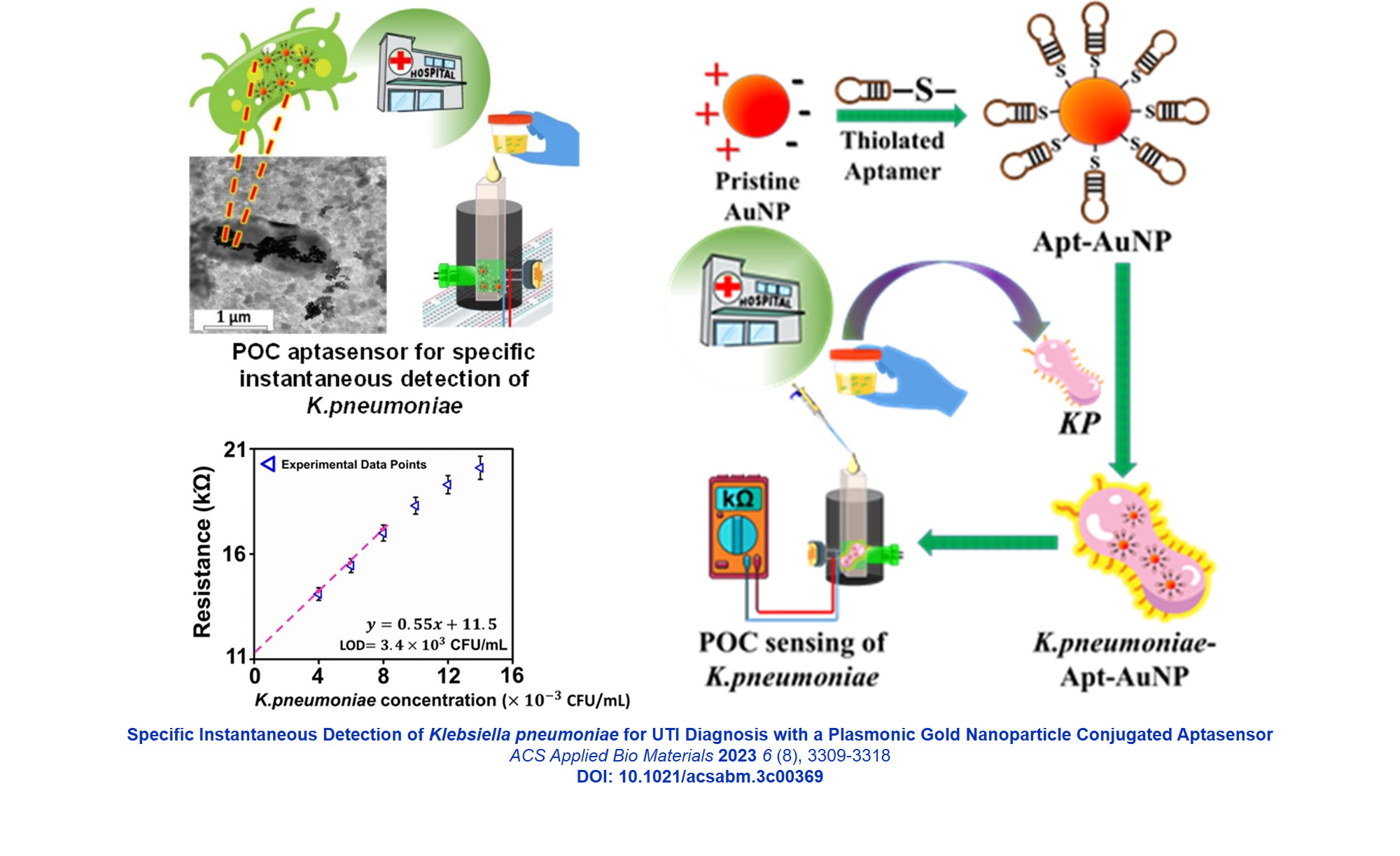2024 AIChE Annual Meeting
(295d) Rapid and Sensitive Detection of Klebsiella Pneumoniae for UTI Diagnosis with Plasmonic Gold Nanoparticle Conjugated Aptasensor
Urinary tract infection (UTI), which can be caused by various pathogens, if not detected at an early stage can be fatal. It is essential to identify the specific pathogen responsible for UTI for appropriate treatment. This study describes a generic approach to the fabrication of a prototype for the non-invasive detection of a specific pathogen using a tailor-made plasmonic aptamer-gold nanoparticle (AuNP) assay. The assay is advantageous because the adsorbed specific aptamers passivate the nanoparticle surfaces and reduce and/or eliminate false-positive responses to non-target analytes. Based on the Localized Surface Plasmon Resonance (LSPR) phenomena of AuNP, a point-of-care aptasensor was designed that shows specific changes in the absorbance in the visible spectra in presence of a target pathogen for robust and fast screening of UTI samples ( Indian isolates ). In this study, we demonstrate the specific detection of Klebsiella pneumoniae bacteria with LoD as low as 3.4×103 CFU/mL.This study shows the detection of specific pathogen using the development of a point-of-care (POC) aptasensor prototype for the quantification of the pathogen present in the UTI suspected patient along with the identification of a specific pathogen within 5 min. A generic methodology is developed that can confirm a specific bacterial presence in the clinical sample which can aid the doctor if the antibiotics should be administered. Not only that, the developed prototype may help to identify the specific drug that can be effective or ineffective due to mutations in pathogens that cause antimicrobial resistance (AMR). The developed aptasensor prototype for K.pneumoniae was tested against the gold standard clinical practice from a nearby Hospital (GNRC Hospital Guwahati, INDIA) and the results were found promising for frugal application as the costs of the aptasensor prototype and that of a single test are ~ $ 7.47 and ~ $ 0.1 respectively. Our developed aptasensor has the potential to be the frugal point of care device for the detection of such pathogens and contribute significantly to primary healthcare.


